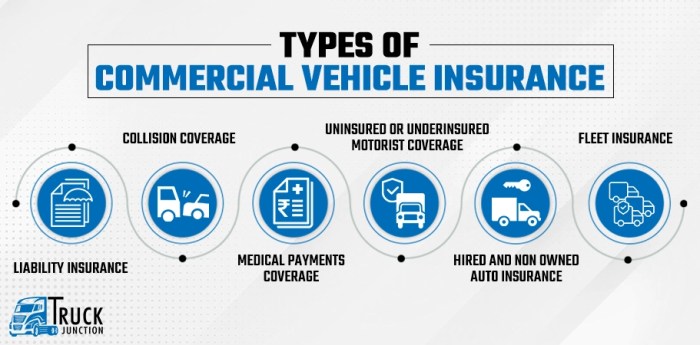Delve into the world of life insurance for business owners with this informative guide that explores the different types of policies available and the factors to consider when choosing the right coverage.
From customizing policies to understanding the importance of life insurance in succession planning, this piece is your go-to resource for all things related to ensuring the financial security of your business.
Types of Life Insurance for Business Owners

When it comes to protecting your business and loved ones, choosing the right type of life insurance is crucial. There are various options available for business owners, each with its own features and benefits. Let's explore the different types of life insurance tailored for business owners.
Term Life Insurance
Term life insurance provides coverage for a specific period, typically ranging from 10 to 30 years. It offers a death benefit to your beneficiaries if you pass away during the term. This type of life insurance is often more affordable compared to whole life or universal life insurance.
However, it does not accumulate cash value and expires at the end of the term.
Whole Life Insurance
Whole life insurance provides coverage for your entire life as long as premiums are paid. It offers a death benefit to your beneficiaries and also accumulates cash value over time. This cash value can be accessed through loans or withdrawals, making it a valuable asset for business owners.
While whole life insurance premiums are higher than term life insurance, the coverage is permanent and offers financial security.
Universal Life Insurance
Universal life insurance offers flexibility in premium payments and death benefits. It combines a death benefit with a savings component that earns interest over time. Business owners can adjust their coverage and premiums to suit their financial needs. Universal life insurance provides a cash value accumulation that can be utilized for retirement planning or business expenses.Comparing the advantages and disadvantages of each type of life insurance can help business owners make an informed decision based on their unique circumstances and goals.
It's essential to consider factors such as cost, coverage duration, cash value accumulation, and flexibility when choosing the right life insurance policy for your business. Consulting with a financial advisor can also provide valuable insights into selecting the most suitable life insurance option for your business needs.
Factors to Consider When Choosing Life Insurance

When selecting life insurance as a business owner, several key factors should be taken into consideration to ensure the policy meets your needs and goals. Factors such as coverage amount, premium costs, flexibility, and tax implications play a crucial role in decision-making.
Coverage Amount
Determining the right coverage amount is essential when choosing life insurance for business owners. The coverage should be sufficient to protect your business and loved ones in case of unexpected events. Consider factors such as outstanding debts, business expenses, and the financial needs of your family to determine the appropriate coverage amount.
Premium Costs
The premium costs of a life insurance policy can vary based on factors such as age, health condition, coverage amount, and type of policy. It's important to evaluate the affordability of premiums while ensuring that the coverage meets your financial objectives.
Compare quotes from different insurers to find a policy that offers a balance between cost and benefits.
Flexibility
Flexibility in a life insurance policy allows business owners to make adjustments as their needs change over time. Look for policies that offer options to increase or decrease coverage, change beneficiaries, or convert to a different type of policy if necessary.
Flexibility ensures that your life insurance policy can adapt to your evolving business and personal circumstances.
Tax Implications
Understanding the tax implications of a life insurance policy is crucial for business owners. Depending on the type of policy and how it is structured, life insurance can provide tax benefits such as tax-deferred cash value growth or tax-free death benefits for beneficiaries.
Consult with a tax advisor to explore the tax advantages and consequences of different life insurance options.
Importance of Life Insurance for Business Succession Planning

Life insurance plays a crucial role in business succession planning as it provides a financial safety net for the smooth transition of ownership in the event of a business owner's death. It ensures that the business can continue operating without disruption and helps protect the financial stability of the company and the family members involved.
Role of Life Insurance in Business Succession Planning
Life insurance can help facilitate a smooth transition of ownership by providing funds to cover any outstanding debts, taxes, or other financial obligations. This ensures that the business can continue operating without having to be sold off to pay off debts, preserving its value and legacy.
- Life insurance can be used to fund a buy-sell agreement, allowing the remaining business owners to buy out the deceased owner's share of the business. This helps maintain continuity and control over the business.
- It can also provide liquidity to the business owner's family, ensuring that they are fairly compensated for their share of the business and can continue their financial security.
- By integrating life insurance into a comprehensive succession plan, business owners can ensure that their vision for the future of the business is carried out and that their legacy is preserved.
Best Practices for Integrating Life Insurance into Succession Planning
When incorporating life insurance into a succession plan, it is essential to:
- Conduct a thorough financial analysis to determine the amount of coverage needed to protect the business adequately.
- Regularly review and update the life insurance policy to account for changes in the business's value, ownership structure, or financial needs.
- Communicate openly with family members, business partners, and key stakeholders about the role of life insurance in the succession plan to ensure everyone is on the same page.
- Work with financial advisors and legal experts to create a comprehensive plan that addresses all aspects of succession, including tax implications, estate planning, and business valuation.
Customizing Life Insurance Policies for Business Needs
When it comes to protecting the future of your business, having a customized life insurance policy tailored to your unique needs as a business owner is essential. By incorporating specific riders and endorsements, you can enhance your life insurance policy to address key risks faced by business owners.
Let's explore how customization options can make a significant difference in your business planning.
Utilizing Riders and Endorsements
- Riders such as key person insurance can provide coverage for key employees whose loss could significantly impact the business.
- Buy-sell agreement funding riders ensure that business partners have the funds to buy out the share of a deceased partner.
- Business loan protection riders can help cover outstanding business debts in case of the insured's death.
Addressing Key Risks
- Customizing your policy to include disability income riders can provide income replacement in case of a disability that prevents you from working.
- Business overhead expense insurance can cover essential business expenses in case the owner is unable to work due to a disability.
- Contingent liability coverage can protect your business from unexpected liabilities that may arise.
Final Summary
In conclusion, securing the best life insurance for business owners is crucial in safeguarding the future of your enterprise. By understanding the various options and tailoring a policy to meet your specific needs, you can protect your business and its assets for years to come.










